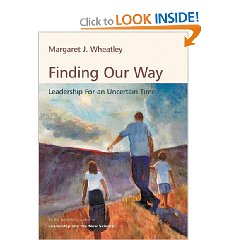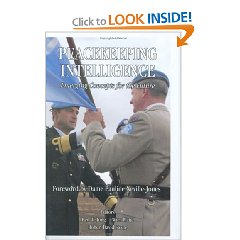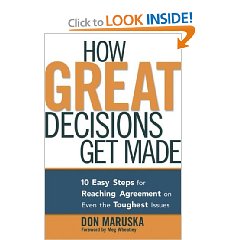This is really four booklets in one: a booklet on the imminence of exponential growth within information technologies including genetics, nano-technology, and robotics; a booklet on the general directions and possibilities within each of these three areas; a booklet responding to critics of his past works; and lengthy notes. All four are exceptional in their detail, but somewhat dry.
I was disappointed to see no mention of Kevin Kelly's Out of Control: The Rise of Neo-Biological Civilization and just one tiny reference to Stewart Brand (co-evolution) in a note. Howard Rheingold (virtual reality) and Tom Atlee (collective intelligence) go unmentioned. It is almost as if Kurzweil, who is surely familiar with these “populist” works, has a disdain for those who evaluate the socio-cultural implications of technology, rather than only its technical merits.
This is an important book, but it is by a nerd for nerds. [Sorry, but anyone who takes 250 vitamin supplements and has a schedule of both direct intravenous supplements and almost daily blood testing, is an obsessive nerd however worthy the cause.] It assumes that information technologies, growing exponentially, will solve world hunger, eliminate disease, replenish water, create renewable energy, and allow all of us to have the bodies we want, and to see and feel in our mates the bodies they want. All of this is said somewhat blandly, without the socio-cultural exploration or global evaluation that is characteristic of other works by reporters on the technology, rather than the technologists themselves.
The book is, in short, divorced from the humanities and the human condition, and devoid of any understanding of the pathos and pathology of immoral governments and corporations that will do anything they can to derail progress that is not profitable. It addresses, but with cursory concern, most of the fears voiced by various critics about run-away machines and lethal technologies that self-replicate in toxic manners to the detriment of their human creators.
The book is strongest in its detailed discussion of both computing power and draconian drops in needed energy for both computing and for manufacturing using new forms of computing. The charts are fun and helpful. The index is quite good.
I put the book down, after a pleasant afternoon of study, with several feelings.
First, that I should give Joel Garreau higher marks for making this interesting, and recommend that his book be bought at the same time as this one.
Second, that there is an interesting schism between the Kurzweil-Gates gang that believes they can rule the world with machines; and the Atlee-Wheatley gang that believes that collective **human** intelligence, with machines playing a facilitating but not a dominant role, is the desired outcome.
Third that there really are very promising technologies with considerable potential down the road, but that government is not being serious about stressing peaceful applications–the author is one of five advisors to the U.S. military on advanced technologies, and it distresses me that he supports a Defense Advanced Research Programs Agency (DARPA) that focuses on making war rather than peace–imagine if we applied the same resources to preventing war and creating wealth?
Fourth, information technologies are indeed going to change the balance of power among nations, states, and neighborhoods–on balance, based on his explicit cautions, I predict a real estate collapse in the over-priced major cities of the US, and a phenomenal rise of high-technology villages in Costa Rica and elsewhere.
The singularity may be near, as the author suggests, but between now and then tens of millions more will die. Technology in isolation is not enough–absent broad ethical context, it remains primarily a vehicle for nerds to develop and corporations to exploit. As I told an internal think session at Interval in the 1990's (“GOD, MAN, & INFORMATION:. COMMENTS TO INTERVAL IN-HOUSE”. Tuesday, 9 March 1993″ can use as a Yahoo search) until our technologies can change the lives of every man, woman, and child in the Third World, they are not truly transformative. This book hints at a future that may not be achieved, not for lack of technology, but for lack of good will.
EDIT of 24 Oct 05: Tonight I will review James Howard Kunstler's The Long Emergency: Surviving the End of Oil, Climate Change, and Other Converging Catastrophes of the Twenty-First Century His bottom line is that cheap oil underlies all of our surburban, high-rise, mega-agriculture, and car-based mobility, and that the end of cheap oil is going to have catastrophic effects on how we live, driving much of the country into poverty and dislocation, with the best lives being in those communities that learn to live with local agriculture and local power options. Definitely the opposite of what Kurzweil sees, and therefore recommended as a competing viewpoint.
EDIT of 12 Dec 07: ethics is something I have thought about a lot, and my first public article outside the intelligence community was entitled “E3i: Ethics, Ecology, Evolution, & Intelligence: An Alternative Paradigm for *National* Intelligence.” It must be something about engineers. Neither the author of this book, nor the Google Triumverate, seem to grasp the moral implications of technology run amuk without respect for ethics, privacy, copyright, humanity, etc. This is one reason I admire E. O. Wilson so much–the first of his works that I read, Consilience: The Unity of Knowledge, answered the question: “Why do the sciences need the humanities?” The second, The Future of Life, answered the question, “What is the cost and how do we save the planet?” Science had little to do with the latter. The two authors are poles apart.









